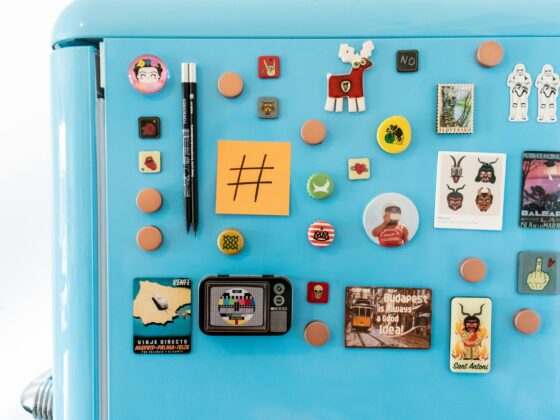
Technology in hospitality has never evolved faster, with hotels embracing digital transformation to enhance guest experiences, optimize operations, and drive revenue. From AI-powered personalization to smarter infrastructure, the pace of innovation in 2025 will separate industry leaders from those playing catch-up. Here are the key trends shaping the future of hospitality technology.
Key Trends to Watch in 2025
Hold on tight because 2025 is coming in hot. Here are a few trends I’m keeping an eye on this year, plus some insights to help your brand reach its audiences:
1. Efficiency Takes Center Stage
If there’s one hallmark of 2024, it’s the rise of the “era of productivity,” which will continue to spread into 2025 and beyond. Efficiency has taken a front seat in marketing, driven by the widespread adoption of cutting-edge tools like generative AI. For businesses, it’s not just about working harder—it’s about working smarter.
Generative AI has revolutionized workflows, from automating repetitive tasks to generating first drafts of ad copy or blog posts. While these technologies are incredibly powerful, they do not replace human creativity. Instead, they can be used to complement it by saving time and cutting costs.
Brands are also using AI for campaign briefings, customer insights, and A/B testing to help predict what messages might resonate before launching campaigns. It’s now used less for overtly generated ads and more for optimizing internal processes that lead to better marketing decisions.
If you’re not sure how to add generative AI into your workflow, start small. Begin by taking stock of your current workflow to identify time-consuming, repetitive processes that could benefit from AI assistance. Then, leverage AI tools like ChatGPT or Jasper to help streamline your tasks so your team can focus on big-picture creativity instead.
2. Customer-Centricity & Brand Values
It’s no longer enough for brands to simply sell products or services. You also need to stand for something. A Harris Poll commissioned by Google Cloud found that 82% of consumers prefer to purchase from companies that align with their values. This trend has given rise to marketing strategies that prioritize authenticity and shared beliefs.
Nike’s “Winning Isn’t for Everyone” campaign stands out as an example of this. By merging bold storytelling with its core value of empowering athletes of all levels, Nike resonated deeply with its audience, driving loyalty and engagement.
If you haven’t done this already, take some time to pinpoint your brand’s core values. Are they clearly reflected in your messaging? Make a list of what matters most to your target audience and find ways to authentically integrate those values into your campaigns.
3. Data Privacy as a Competitive Advantage
A significant challenge in 2025 will be maintaining consumer trust in an increasingly privacy-conscious world. Regulations like the General Data Protection Regulation in Europe and the rise in consumer demand for data transparency mean businesses cannot afford to take shortcuts when it comes to protecting user information.
Brands with clear and accessible privacy policies will see loyalty grow in 2025, and those without will be left behind. Transparent consent processes make customers feel respected and valued, differentiating these brands from competitors.
That said, while advanced technologies like data clean rooms are gaining popularity, you still need to tread carefully. Avoid overinvesting in complex tools without having a clear and achievable privacy strategy in place first.
4. Social Media Evolution
With TikTok facing bans in key markets and platforms like X continuing to grapple with identity crises, the social media arena is shifting fast. The focus is veering toward niche creators and platforms emphasizing social commerce. Consumers are looking for authenticity in their digital interactions, and businesses that harness this effectively will thrive the most.
When possible, collaborate with niche creators who share your brand’s values and message. Also, extend your reach by diversifying your efforts across platforms so you can build credibility and maximize engagement. As a side bonus, this also helps you remain resilient when audiences shift or platforms close, as they inevitably do.
5. CRM & Customer Loyalty
The days of standalone customer relationship management (CRM) systems and disjointed loyalty programs are fading. Savvy businesses are integrating these tools to form seamless, efficient customer experiences that drive repeat business. When CRM and loyalty systems work hand in hand, you get a powerful blueprint for enhancing the customer’s overall experience while boosting retention.
As 2025 kicks off, conduct a thorough audit of your CRM and loyalty programs. Pinpoint inefficiencies and make sure your data sources are synced so that you can deliver consistent, high-quality insights.
6. Marketing in Fragmented Media Environments
The rise of streaming services and on-demand content has fractured our media consumption in an unprecedented way.
Gone are the days when brands could rely on a single media channel to reach large audiences—strategies now need to account for scattered viewing habits, especially in high-value segments like sports fans.
To figure out the best approach, experiment with emerging platforms (such as Twitch, originally a gaming platform but now a growing hub for live streaming across interests) and collaborative partnership ecosystems.
This will help you identify the most effective channels for your audience while staying adaptable to fast-changing preferences. For example, a brand’s partnerships with a sports organization, like Verizon’s 5G experiences with the NFL, have the unique ability to integrate brands into the fan experience in an authentic, cohesive way.
7. Sustainability as a Core Business Value
Sustainability has evolved from being a nice-to-have to a must-have. Consumers are overwhelmingly favoring eco-conscious brands, and businesses need to follow suit.
Transparency around sustainable practices isn’t just good ethics anymore—it’s good business. People want to know that the brands they support are truly making an impact, and they’ll reward companies that get it right. Remember, your audience is looking for brands that care a lot about what they care about, and sustainability commitments are no exception.
So, don’t just talk about sustainability—demonstrate it. Whether it’s via your supply chain transparency, waste reduction efforts, or sustainable packaging, incorporate these values into your messaging and operations for a genuine connection with eco-minded consumers.
8. Economic and Political Uncertainty
Inflation, tariffs, and policy shifts—oh my. Economic and political factors continue to create uncertainty, especially following a new presidency, making flexibility a key component of any marketing strategy. Businesses must find ways to adapt quickly to maintain return on investment (ROI) in an unpredictable climate.
There’s not much you can do to predict (or deal with) economic or political swings. However, you can create a malleable strategy to bounce back from whatever comes your way. Stay kinetic!
To accomplish this, build a flexible marketing budget. Prioritize short-term campaigns that can be adjusted quickly and focus on channels with proven ROI. This way, you’ll be able to pivot without sacrificing performance.
How to Adapt to 2025’s Trends
The trends above highlight one undeniable truth—agility is everything. How can you make sure your business is primed for what’s ahead?
Start by doubling down on team training, especially when it comes to tools like AI and advanced analytics. These are your ticket to staying competitive.
Also, keep your campaigns values-driven and customer-centric. Align your offerings with customers’ needs and show them you care about more than just selling a product or service. When marketing revolves around impact, it becomes memorable. You can’t go wrong by sticking to who you are at your core.
Finally, make data your best friend. Whether it’s zero-party data from direct customer interactions or predictive analytics from high-powered tools, insight-driven decisions yield the best results.
2025 is shaping up to be thrilling and challenging yet filled with opportunity. Now’s the time to adapt and act, making sure that your strategy isn’t just current but ahead of its time. With the right mindset and tools, the year could very well become a catalyst for your growth.
Play it smart, stay agile, and seize the moment. After all, in marketing, as elsewhere, the only direction worth going is forward.
About the Author
About Adam Ortman: Adam Ortman is the president and founder of Kinetic319, a leading marketing and advertising agency headquartered in Denver, Colo. The agency offers full-funnel marketing campaigns, fusing cutting-edge practices and consumer psychology to help businesses transcend mediums and resonate with global audiences.









